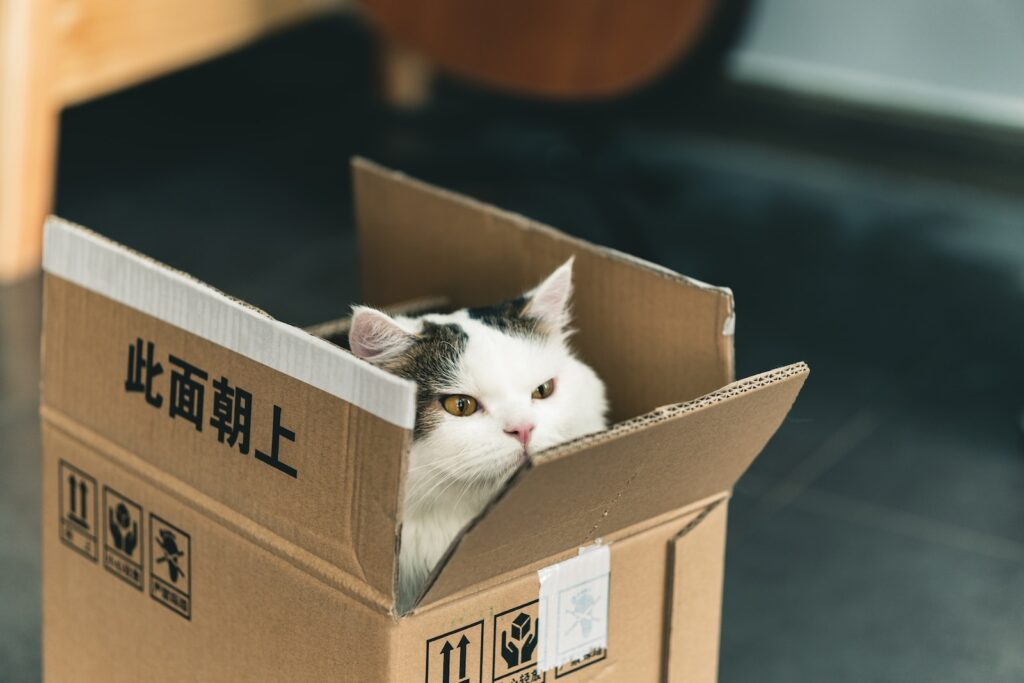Understand the Senior Cat Psyche
Just like humans, our feline friends undergo changes as they age. As the whiskers turn gray, they may show signs of aging not just in their physique but also in their behavior. As cat parents, understanding these changes can help in providing the best care for them.
Why Senior Cats Forget
As cats age, they undergo various neurological and physiological changes. Much like in aging humans, brain cells may deteriorate or function less efficiently. This isn’t a sign of stubbornness or rebellion. They’re not purposefully ignoring the lessons they’ve learned as kittens. Instead, they’re merely exhibiting natural signs of aging. So, next time your elderly feline makes a mistake, remember it’s not intentional; it’s just nature taking its course.
Signs of Cognitive Dysfunction
Cognitive Dysfunction Syndrome (CDS) is a well-recognized condition in senior pets. It’s akin to dementia in humans. Signs include disorientation where your cat might seem lost in familiar surroundings, altered interactions with humans or other pets, and sleep disturbances, such as waking up in the middle of the night. Recognizing these signs early on is essential for providing the right care and interventions.
Emotional Needs
Older cats, just like elderly humans, seek comfort and security. The world may seem a bit more daunting or confusing to them. Their senses might not be as sharp as they used to be, making the environment seem unfamiliar at times. When retraining them, especially in aspects such as litter usage, it’s essential to be patient. Harsh scolding or impatience can lead to stress and anxiety. Instead, gentle guidance and positive reinforcement can work wonders.
Physical Challenges
Aging brings about physical challenges. Joints become stiffer, and muscles might not be as robust. Conditions like arthritis are common in senior cats. This can make climbing into a high-sided litter box or making their way down a long hallway to reach their box a painful task. Being mindful of these physical changes is critical when considering litter training. Offering easy access and a comfortable environment can make a significant difference in their litter box habits.
Choose the Right Litter Box
When it comes to senior cats, the right environment can make a massive difference in their habits. And, a crucial part of that environment is the litter box. From its size to its location, every detail matters.
Box Size
While kittens might manage in smaller boxes, older cats cherish a bit more space. Not just because of their size but also to accommodate their possibly arthritic joints. A spacious box provides ample room to move, turn around, and dig. It ensures that they can find a comfortable position, reducing the chances of accidents outside the box.
Entrance and Exit
Jumping in and out of a high-sided box can be challenging for senior cats. If the box is too tall, they might find it painful or cumbersome, leading to avoidance. Opting for boxes with lower sides or even those with built-in ramps can be a lifesaver. Such designs reduce the need to leap, ensuring easy and pain-free access.
Box Location
Remember the old saying, “Location, location, location”? It applies here too. A senior cat might not be as willing as its younger self to climb two flights of stairs for a bathroom break. Placing the litter box in a quiet yet easily accessible location is key. Avoid placing it in busy areas where they might feel interrupted. But at the same time, ensure they don’t have to travel far to get there.
Cleaning Routine
Senior cats can be quite particular about cleanliness. A dirty box might deter them from using it. It’s essential to scoop the litter daily, removing clumps of waste. Regularly washing the box and changing the litter ensures a fresh and inviting environment. Plus, it’s a hygienic practice that can also prevent potential health issues.
Opt for Senior-friendly Litter
The type of litter you choose plays a significant role in your cat’s litter box habits, especially for senior cats. Their age-related sensitivities require special considerations.
Texture Matters
Just as we might prefer soft slippers over tight shoes, senior cats have preferences too. As they age, their paws may become more sensitive. Soft, sandy-textured litters can be easier on their ageing paws. It’s like giving them a cushiony bed to walk on. Making the right choice in texture can encourage consistent litter box use.
Dust Levels
Senior cats, like humans, can be more susceptible to respiratory issues. Litters that produce a lot of dust can irritate their lungs and noses. Opting for low-dust litters is essential to ensure they breathe easy. Plus, it’s better for the household as it reduces the spread of litter dust around the home.
Odor Control
While a fragrant litter might appeal to humans, for senior cats, strong scents can be overpowering. Their noses, even if not as keen as in their youth, might be sensitive to strong fragrances. It’s better to choose litters that are either unscented or have a mild, natural scent. This ensures they aren’t repelled by overpowering odors.
Clumping vs Non-clumping
When it comes to cleaning, clumping litters can be a boon. They easily segregate waste, making scooping simpler. However, ensure the clumping litter isn’t too sticky or hard. The last thing you want is for it to be harsh on your cat’s tender paws. Non-clumping litters can also be an option, provided they’re soft and changed frequently to maintain cleanliness.
Maintain a Routine
Cats, regardless of age, thrive on routine. This becomes even more pronounced in their senior years. A stable environment and consistent habits can ease much of the stress they might feel.
Consistency is Key
Imagine having your personal space moved around constantly. Confusing, right? For senior cats, moving their litter box or changing its type frequently can be disorienting. Keeping the box in a consistent location and maintaining the same type of litter can bring a sense of security.
Gentle Reminders
Older cats might occasionally forget where their box is, especially if they’re experiencing cognitive changes. Gently guiding them to their litter box periodically, especially after meals or naps, can be a helpful reminder. Over time, these nudges can reinforce their habit.
Observe and Adjust
Every cat is unique. Observing your senior cat’s behavior and habits can offer valuable insights. If they seem to avoid the litter, it might be worth experimenting with a different type or location. Flexibility, combined with observation, ensures their needs are met.
Patience, Patience, Patience
Training or re-training a senior cat is not an overnight job. It requires patience. Celebrate the small wins and understand that occasional accidents might happen. With time, patience, and consistency, they’ll get there.
Watch for Health Issues
Senior cats, just like their human counterparts, face health challenges as they age. Many of these challenges manifest in their litter habits, so keeping a close watch can provide crucial insights.
Urinary Problems
Increased frequency in the litter box, or signs of distress while urinating, may point to urinary tract infections (UTIs) or other urinary issues. Don’t dismiss these signs as mere behavioral changes. Early detection and treatment can prevent complications.
Changes in Stool
Consistency and frequency of stool can indicate a lot about a cat’s health. Diarrhea might suggest digestive issues or infections, while constipation could point to dehydration or other concerns. Ensure their diet suits their age and digestive needs.
Litter Avoidance
Is your senior cat suddenly avoiding the litter box? This could be due to behavioral reasons, or they might be experiencing pain while trying to use the box. Issues such as arthritis can make certain litter box styles painful or challenging to access. If the setup seems fine, it’s worth considering a vet visit.
Mobility Concerns
If you notice your cat struggling to get into or out of the litter box, or any sign of limping, it’s a cause for concern. Senior cats are prone to arthritis and joint issues. They might need a litter box with a lower entrance or even medication to manage their pain.
Rewards and Positive Reinforcement
Positive reinforcement plays a vital role in influencing behavior, especially in senior cats. Being kind, understanding, and patient can make a world of difference.
Treat Time!
Who doesn’t love a treat now and then? When your senior cat uses the litter box correctly, rewarding them with their favorite snack can work wonders. It’s a positive association that reinforces good behavior. However, moderation is essential to prevent weight issues or dietary imbalances.
Verbal Praises
Cats, despite their reputation for aloofness, are very much attuned to their human’s voice. A heartfelt “Good job!” or “Well done!” can be as rewarding as a treat. The tone matters; keep it upbeat and loving. Over time, they’ll associate the praise with the good behavior.
Gentle Petting
Physical affirmation, like a gentle stroke on the back or a scratch behind the ears, can convey appreciation. Cats are tactile creatures. A touch from their loved one, especially after they’ve done something right, reinforces the positive action.
Avoid Punishments
While it might be frustrating if your senior cat has an accident outside the litter box, punishment is not the answer. Scolding or any negative reinforcement can create fear and confusion. Instead, focus on understanding the root cause and addressing it. Remember, positive reinforcement always works better than punishment.
When to Seek Professional Help
While most litter training challenges can be addressed with patience and understanding, there are times when professional intervention becomes necessary. Here’s when you should consider seeking expert advice.
Persistent Accidents
If your senior cat consistently has accidents outside the litter box, even after multiple attempts to guide them, there might be deeper underlying issues. A vet or a cat behaviorist can provide insights into potential medical or behavioral concerns.
Behavioral Changes
Aggressive behavior, excessive meowing, or withdrawal from social interactions aren’t typical signs of aging. Such drastic behavioral changes can be indicative of health issues, discomfort, or stress. It’s worth discussing these observations with a professional.
Physical Symptoms
Any visible signs of distress, such as limping, excessive grooming, changes in appetite, or weight loss, should be taken seriously. These might be symptoms of underlying health problems that require a vet’s attention.
Peace of Mind
Lastly, if you’re ever in doubt about your senior cat’s behavior or health, seeking professional advice is a good call. It not only ensures your cat’s well-being but also provides peace of mind, knowing you’re doing everything you can for your feline friend.
Conclusion
Re-litter training a senior cat might seem like a daunting task. But remember, it’s not about starting over; it’s about revisiting and adjusting to their changing needs. With understanding, patience, and a bit of guidance, you can ensure that your older feline friend enjoys their golden years with dignity. And in this journey, cherish every purr, every nuzzle, and remember that age is just a number. With love and care, they can remain the same playful kittens at heart that you’ve always adored.
FAQs
- Q: Do senior cats need a different type of litter?
A: Yes, softer textures and low-dust litters are usually better for their delicate paws and respiratory systems.
- Q: Why is my old cat suddenly avoiding the litter box?
A: There could be several reasons, from health issues to discomfort. Always consult with a vet to rule out medical concerns.
- Q: How often should I clean the litter box?
A: For senior cats, daily scooping and frequent washing are ideal to maintain cleanliness and encourage use.
- Q: Are covered litter boxes good for older cats?
A: While some cats might appreciate the privacy, others could find them claustrophobic. Observe your cat’s preferences and adjust accordingly.
- Q: Can I train a senior cat if I adopted them at an older age?
A: Absolutely! Age doesn’t define adaptability. With patience, love, and the right techniques, you can guide them to new habits.






